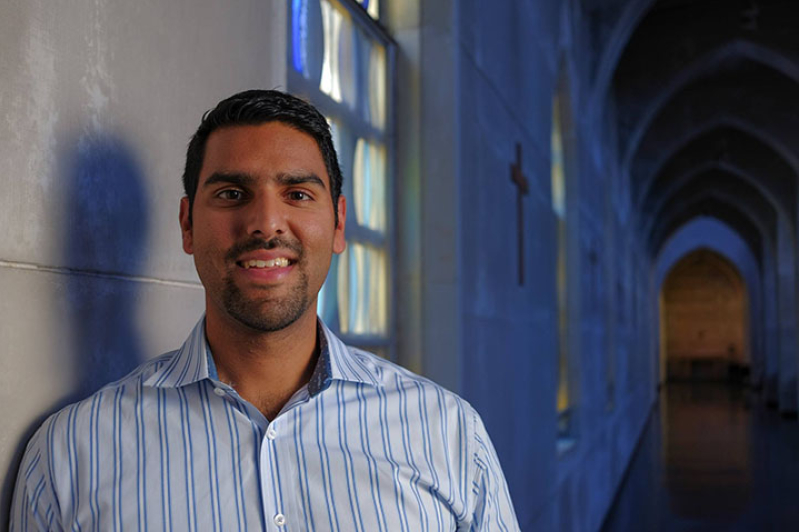
Dan Wallace, Professor of New Testament Studies at Dallas Theological Seminary and renowned Greek scholar, reflected on the life of his "good friend" Nabeel Qureshi and said he has "known few people with such an insatiable desire to learn or with such an incredible impact for the sake of Christ."
Wallace, who is also the Executive Director of the Center for the Study of New Testament Manuscripts, looked back on his friendship with Qureshi, who passed away last week after a year-long battle with stomach cancer, in a recent blog post.
"Nabeel came to faith in Christ dramatically through the instrumentality of his college roommate David Wood and through visions of Christ, about a dozen years ago," Wallace said. "He became a champion for the gospel. His first book, Seeking Allah, Finding Jesus, has been a huge success, selling hundreds of thousands of copies. Nabeel died too soon. He was only 34."
While they were "good friends," the two men had their differences, Wallace said.
"He didn't care much for Calvinism especially," he said. "We would have vigorous, passionate discussions about God's sovereignty and mankind's responsibility/free will, but these never harmed our friendship."
He added, "His interest was in the Gospels and he would be on the opposite end of the spectrum from Bob Thomas when it came to evangelical historical criticism. He was an internationally-known evangelist, especially to Muslims."
Wallace said Qureshi's brain power was "legendary."
"He had read the entire Qur'an in Arabic (the only true Qur'an) by the age of five," he said. "Nabeel was a medical doctor who then went on to earn three master's degrees-one from Biola, one from Duke, and one from Oxford. He was working on his Oxford DPhil when he died. When Nabeel came to Dallas, we would get together to discuss the Gospels."
"He was a sponge!" Wallace continued. "He soaked up everything I said, then wrung it out and gently refuted many of my points! He had great respect for me-far greater than I deserved."
He concluded, "I have known few people with such an insatiable desire to learn or with such an incredible impact for the sake of Christ."
Qureshi leaves behind his wife, Michelle, and his daughter, Ayah.
In a recent op-ed, author Danusha Goska said the success of Qureshi's short but powerful ministry was due to the fact that he "acted out of one of the most controversial forces in history, Christian love."
She pointed out how, in his final YouTube video, Qureshi emphasized that his every word and deed as a counter-jihadi was motivated by Christian love.
"When we talk to people about our beliefs, we should do it through a lens of love, and the whole point should be to bring people together to the truth," he said. "my whole point in teaching is for love to reign. As you consider my ministry, I hope it leaves a legacy of love, of peace, of truth, of caring for one another. That's my hope and my purpose behind this ... Our God is a God of love. That should be what keeps us driven ... Whether you're talking to a Hindu, a Jew, a Muslim, a Christian, whoever you are talking to, may it be out of love."
Qureshi wasn't talking about "Politically Correct love," she said. Rather, he "endorsed, and acted on, and built his huge success on, a much more problematic Christian love"
"It was the kind of Christian love that says, without pussyfooting, 'Your facts are incorrect. Here is the evidence. Your life will improve if you act on this more accurate information,'" she said. "Qureshi was a highly successful counter-jihadi, and he himself identified, as his motivation, the very Christian love that commands its practitioner to care enough about other human beings to want to save them from their beloved lies."
Qureshi, she said, died "as one of the most powerful and beloved counter-jihadis in the world."
"He spent most of his life as a devout Muslim," she wrote. "I know otherwise well-meaning people who have fallen into the trap of conflating Islam with Muslims. Muslims are not Islam. Muslims can be reached with truthful speech...Anyone tempted to feel hostility towards Muslims as people would do well to remember Nabeel Qureshi."
When we attempt to reach others, Goska said, "we do well to remember that Nabeel reached New-York-Times-bestseller status not by speaking from his spleen, but from his desire to touch and elevate his interlocutors and audiences, including Muslims."






